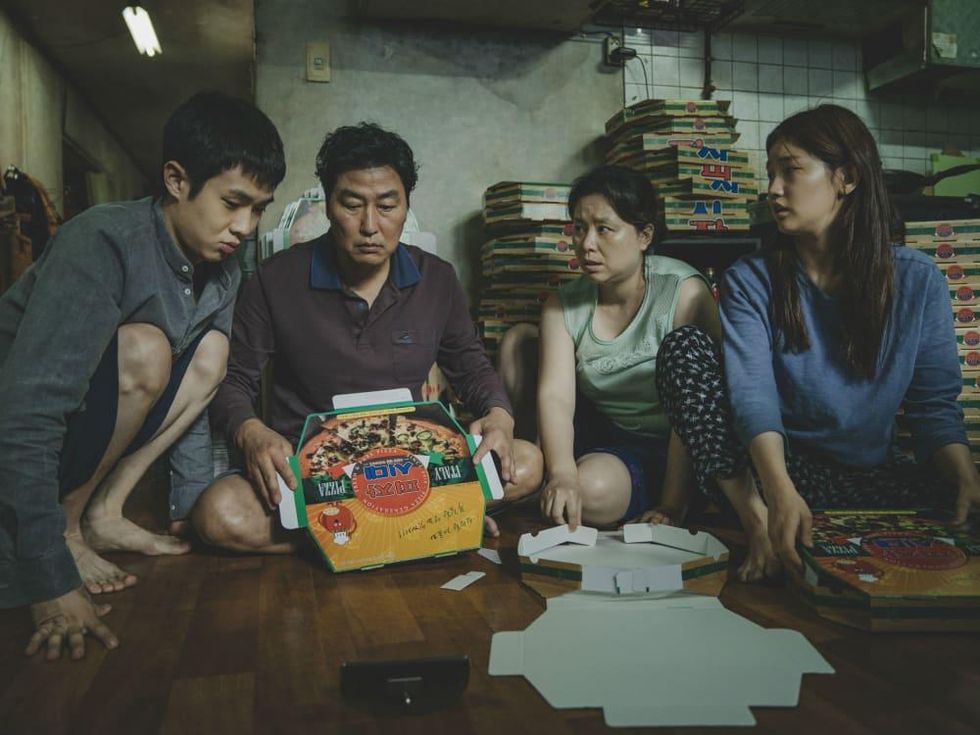Movie Review
Satirical Parasite gets under the skin with class warfare story
Foreign language films, no matter how good, rarely make much of an impact in the United States, either at the box office or at the Oscars. Those that do — Crouching Tiger, Hidden Dragon; Pan’s Labyrinth; Amelie — tend to stand out for their unique storytelling, giving a point of view that’s not often on display in the normal Hollywood films.
The Korean film Parasite, directed and co-written by Bong Joon Ho, is likely to replicate the success of those previous trendsetters. It follows a poor family — father Ki-taek (Kang-ho Song), mother Chung-sook (Hye-jin Jang), son Ki-woo (Woo-sik Choi), and daughter Ki-jung (So-dam Park) — as they slowly but surely infiltrate the lives of the rich Park family in an effort to improve their stock in life.
Things start out innocently enough, with Ki-woo using a small lie to take over as the English tutor for the Parks’ daughter, and Ki-jung soon finding a way to become the art teacher for the Parks’ son. But getting Ki-taek and Chung-sook jobs with the family takes a bit more underhandedness, leading to a twist that will irrevocably change the lives of both families.
Joon Ho has become well known for using genre films like The Host, Snowpiercer, and Okja to comment on different societal issues, and Parasite is no different. It can be taken on surface level as a type of thriller, with enough suspense and violence to satisfy fans of that genre. But it’s clear just from premise that Joon Ho and co-writer Jin Won Han are taking a satirical approach, commenting on class issues in their native South Korea, as well as the world at large.
The differences between the haves and have-nots is stark in the film, and they only get more pronounced as the film goes along. Yet Joon Ho is careful not to label either side as good or bad, although you might be tempted to side with one family over the other. Instead, each family has a complicated inner dynamic that unravels the more the two groups intertwine.
Joon Ho uses a variety of signifiers, including the division of North and South Korea and the fascination of the Parks’ son with Native Americans, to add depth and extra meaning to the story. Those things, as well as the ever-present wealth gap, are played for laughs as much as they are for tension, giving a great balance to the film overall.
While none of the actors will be familiar for U.S. audiences, almost all of them give memorable performances. The film is entirely in Korean with English subtitles, but that proves to be no barrier for enjoying the talents of all involved. Especially notable are Kang-ho Song, Woo-Sik Choi, and Jeong-eun Lee, who plays the Parks’ first housekeeper.
Parasite is a master class in storytelling, providing one of the finest examples of how to entertain the masses while still telling a deep and meaningful story. Joon Ho has made critically-acclaimed films in the past, but this may finally be his ticket to the mainstream.















